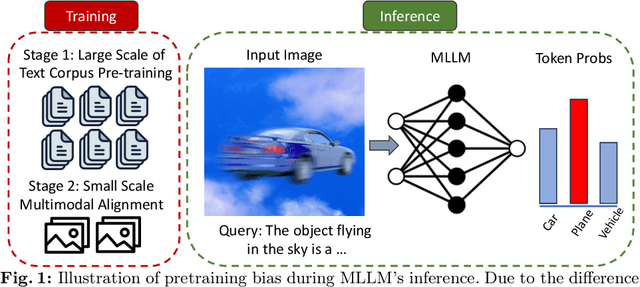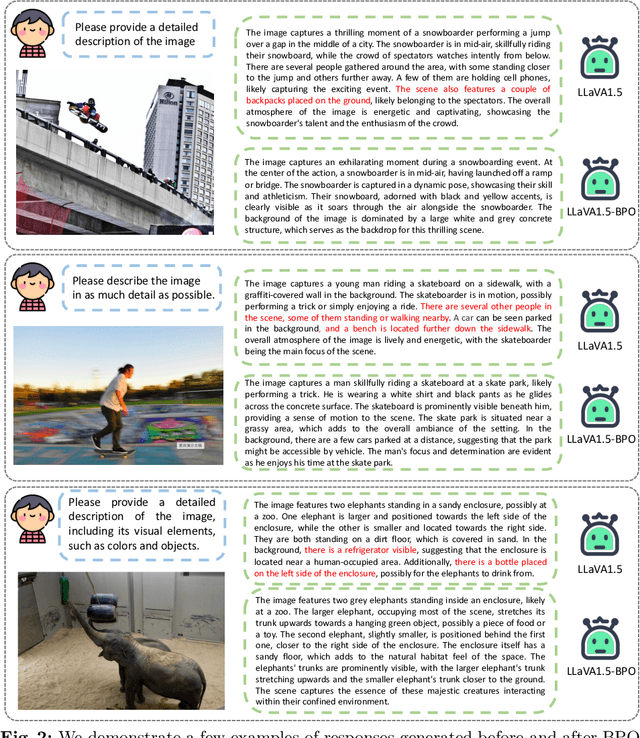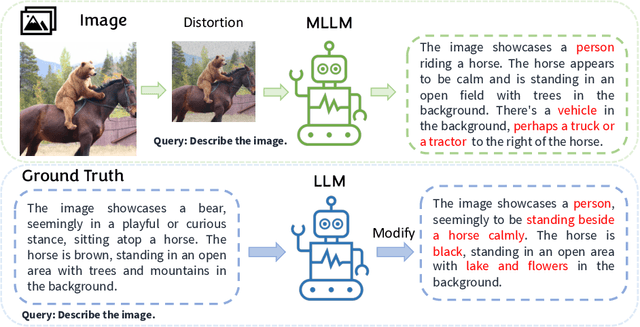Strengthening Multimodal Large Language Model with Bootstrapped Preference Optimization
Paper and Code
Mar 13, 2024



Multimodal Large Language Models (MLLMs) excel in generating responses based on visual inputs. However, they often suffer from a bias towards generating responses similar to their pretraining corpus, overshadowing the importance of visual information. We treat this bias as a "preference" for pretraining statistics, which hinders the model's grounding in visual input. To mitigate this issue, we propose Bootstrapped Preference Optimization (BPO), which conducts preference learning with datasets containing negative responses bootstrapped from the model itself. Specifically, we propose the following two strategies: 1) using distorted image inputs to the MLLM for eliciting responses that contain signified pretraining bias; 2) leveraging text-based LLM to explicitly inject erroneous but common elements into the original response. Those undesirable responses are paired with original annotated responses from the datasets to construct the preference dataset, which is subsequently utilized to perform preference learning. Our approach effectively suppresses pretrained LLM bias, enabling enhanced grounding in visual inputs. Extensive experimentation demonstrates significant performance improvements across multiple benchmarks, advancing the state-of-the-art in multimodal conversational systems.
 Add to Chrome
Add to Chrome Add to Firefox
Add to Firefox Add to Edge
Add to Edge